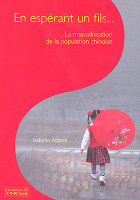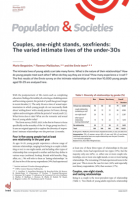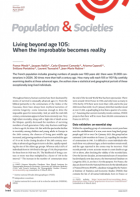
En espérant un fils
La masculinisation de la population chinoise
Collection : Cahiers
n° 165, 2010, 240 pages
Introduction
Première partie
Des discriminations démographiques visibles
Chapitre 1 • Une vue d'ensemble
Chapitre 2 • Pourquoi y a-t-il plus de garçons que de filles ?
Chapitre 3 • Une géographie des discriminations
Chapitre 4 • Les discriminations des filles dans l'enfance
Chapitre 5 • Des inégalités qui perdurent tout au long de la vie
Chapitre 6 • Un phénomène qui n'est pas propre à la Chine
Deuxième partie
Un système de normes et de valeurs qui favorise le masculin
Chapitre 7 • Le statut des femmes dans la société chinoise traditionnelle
Chapitre 8 • Femmes, féminisme et féminités
Chapitre 10 • Pratiques discriminatoires et facteurs de masculinisation
Chapitre 11 • Les raisons familiales et socioéconomiques de la discrimination
Conclusion générale
Chinese baby girls who have the misfortune to be born instead of a long-awaited son go by various names, such as Pandi (literally "awaiting a son"), Laidi ("a son will follow"), or Yehao ("she’ll do too")...
In China, despite the economic boom of recent years, girls are still considered to be of lesser value than boys. In social representations, boys are endowed with positive traits inherent to their sex that are rarely attributed to girls.
Victims of their secondary status, girl infants are less numerous than they should be, and their death rate is abnormally high. Hence, contrary to the demographic trends observed elsewhere in the world, the sex ratio of the Chinese population is becoming increasingly unbalanced, with the number of males growing faster than the number of females.
From a strictly demographic viewpoint, the situation of Chinese women, relative to that of men, is alarming to say the least. We are faced with the immense paradox of a society that holds onto its traditions while marching towards modernization. Although Chinese women have become largely emancipated since the 1950s, their very existence is now under threat. Chinese law explicitly protects the rights of women, yet it is unable to guarantee their most fundamental human right: the right to life.
Isabelle Attané est démographe à l'Ined, spécialiste des questions démographiques de la Chine et des pays asiatiques et travaille en particulier la fécondité, les questions de genre et le statut des femmes, les politiques de contrôle des naissances et la planification familiale.





